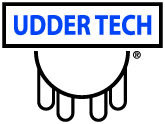Cargill announced Monday that it would be the next meat processor in the U.S. to suspend purchases of cattle that finished on Zilmax. The ban goes into effect Sept. 30. The announcement comes after Merck Animal Health’s Aug. 16 announcement that it would suspend sales of Zilmax in the U.S. and Canada, to conduct further research on its impact.
“While Cargill has not linked Zilmax to any specific incidents involving animal well-being, the company does believe more research is necessary to answer recently raised questions regarding the use of this product,” Cargill said in a company statement.
“Consequently, Cargill supports Merck’s decision to suspend sales of Zilmax in the U.S. and Canada. The last of the cattle currently being fed Zilmax that are in Cargill’s supply chain will be harvested by the end of September. Cargill will be suspending purchase of Zilmax-fed cattle in North America, pending research being conducted by Merck. This will give producers adequate time to transition cattle currently being treated with Zilmax.”
Beta agonists are feed supplements used in the late stages of fed cattle growth to build lean muscle mass on the carcass. Zilmax, a class 2 beta agonist, is known as the more potent product in its ability to add weight and muscle. Optaflexx, or ractopamine, is a class 1 beta agonist made by Elanco Animal Health that also adds weight, but not as dramatically as Zilmax. Optaflexx has not been pulled off the market.
Tyson became the first player to announce a policy change on beta agonists on Aug. 7, with a letter to cattle feeders announcing it would not accept cattle finished in Zilmax (zilpaterol).
Just over a week after that Merck pulled the product off its shelves. Although Merck said it stands by the science and safety of Zilmax, it said it would begin audits to determine its impact on animals, and reaffirm training procedures with producers, to assure its proper use.
According to a Tyson official, the move was not related to food safety, but animal welfare, after non-ambulatory and lame cattle were arriving at its facilities. Tyson said it couldn’t identify a specific cause, but said zilpaterol use had been suggested as a factor.
Cargill echoed that sentiment in its statement on Monday saying, “There are no food safety issues associated with Zilmax or this decision. Meat from cattle treated with Zilmax is safe to eat. Instead, this decision is linked to Cargill’s commitment to ensure the welfare of cattle harvested in the industry.”
Click here to read Cargill's entire statement. ![]()







